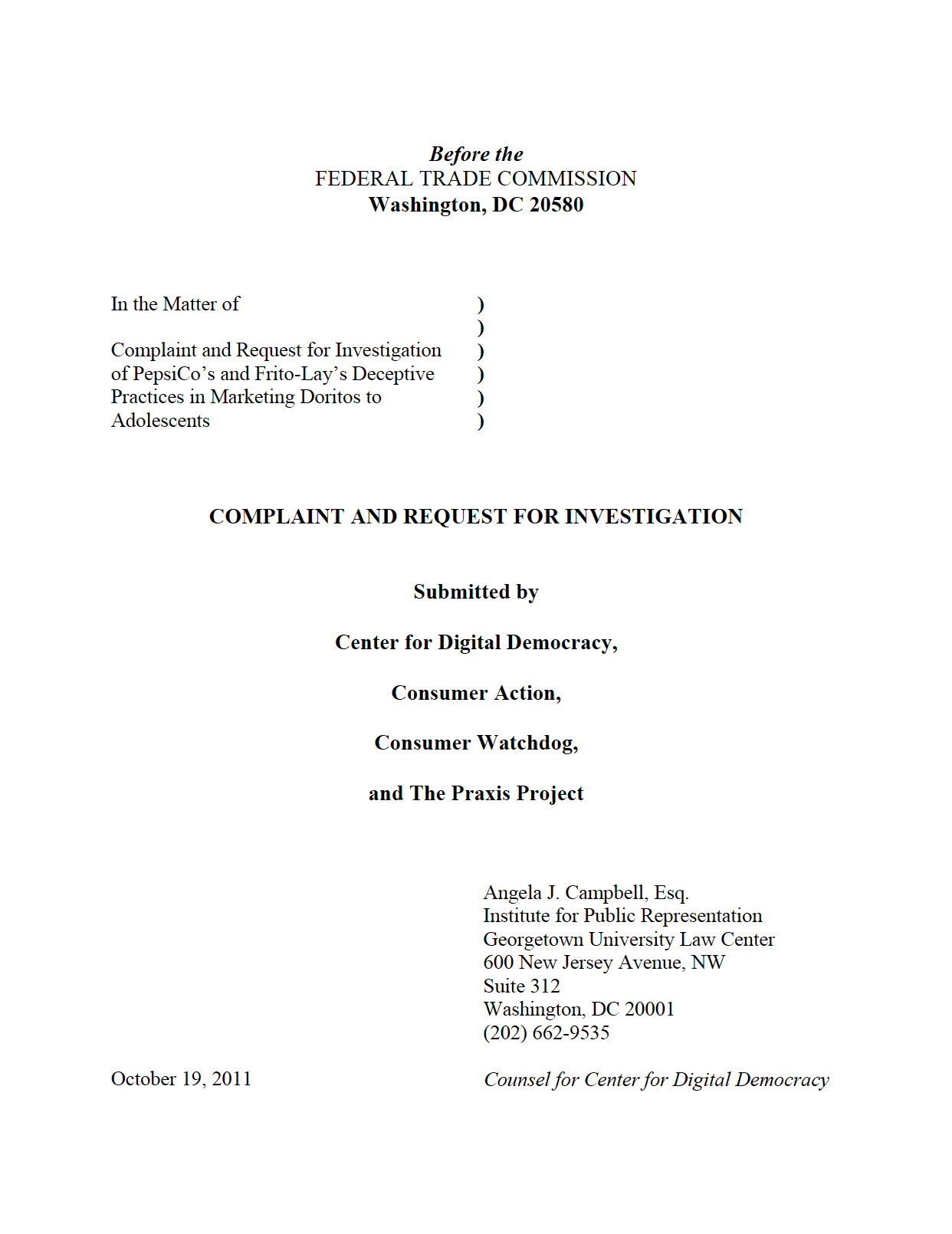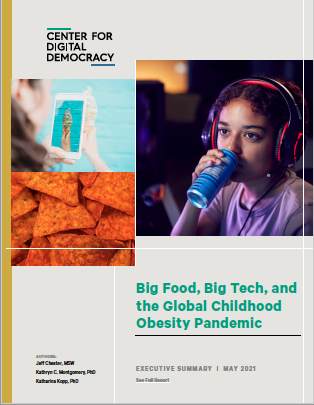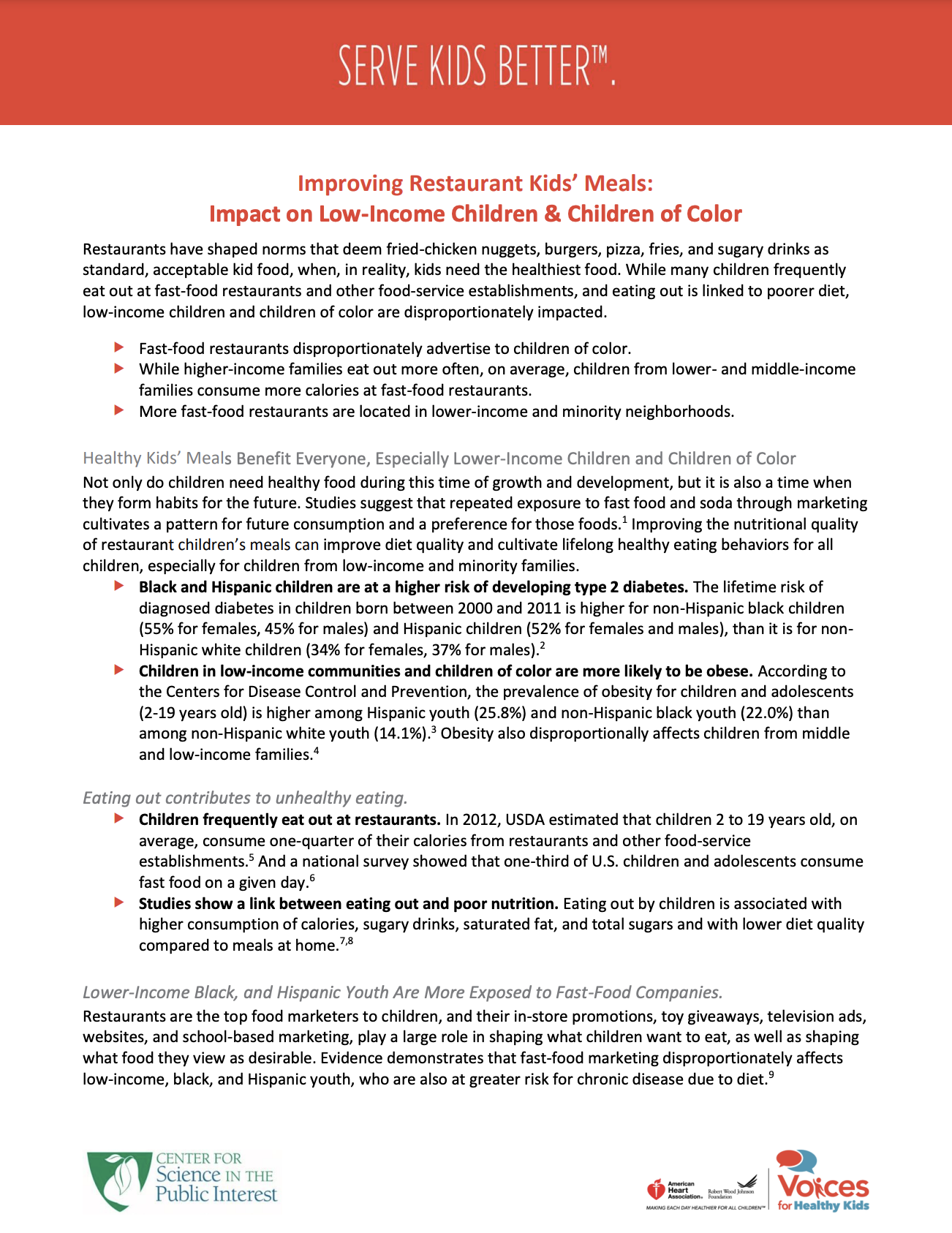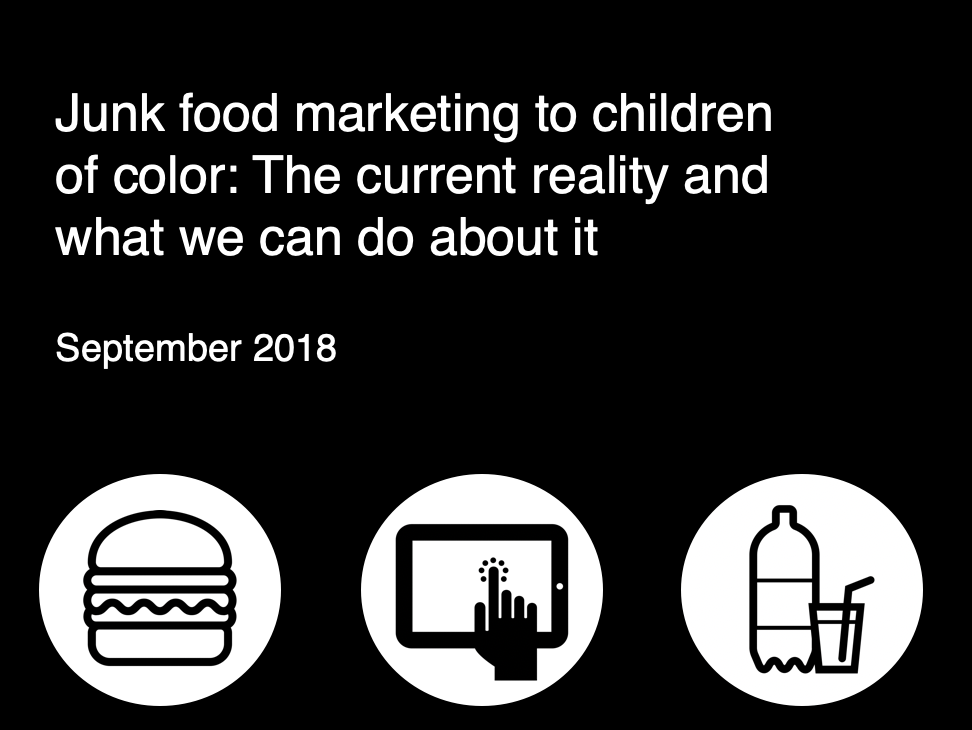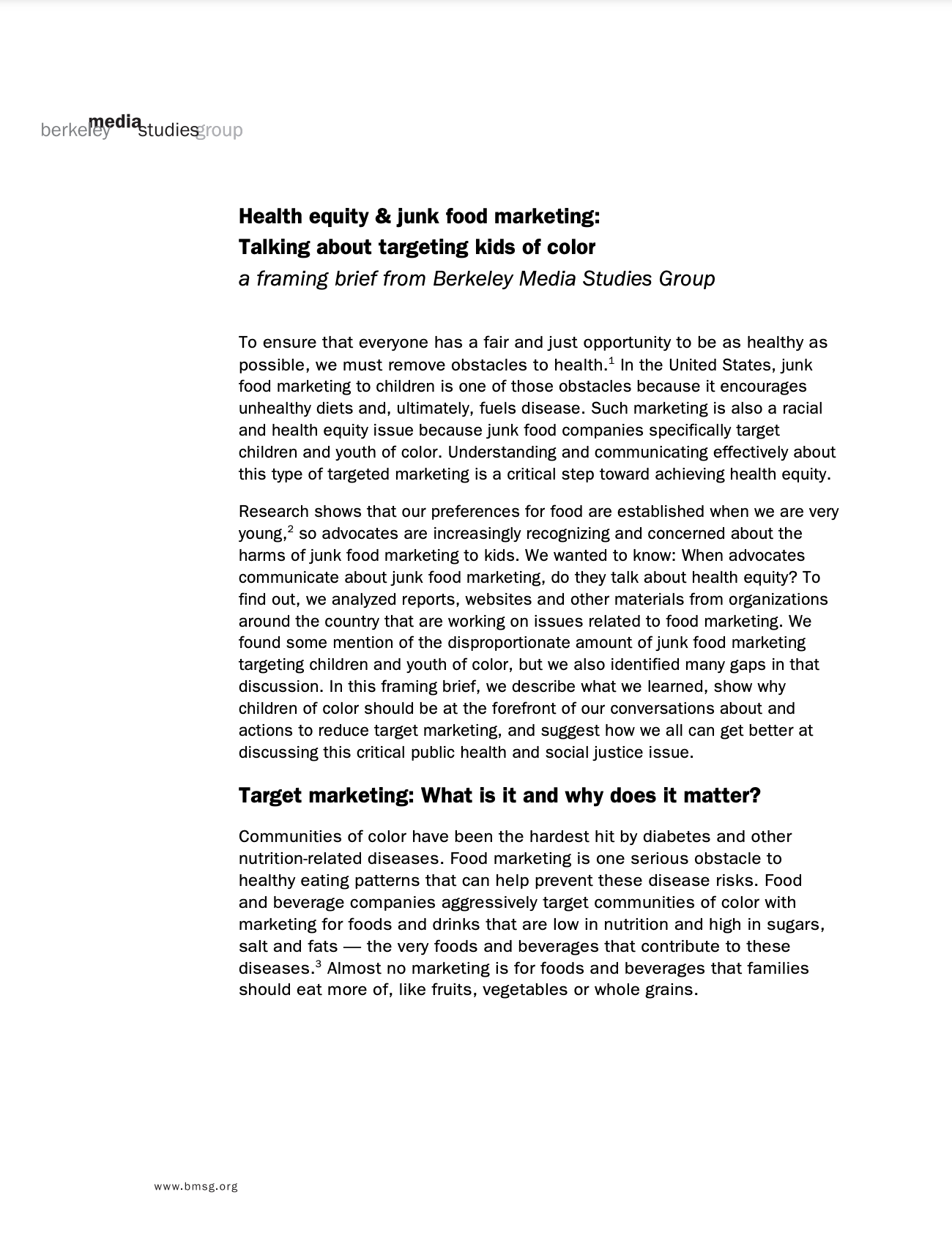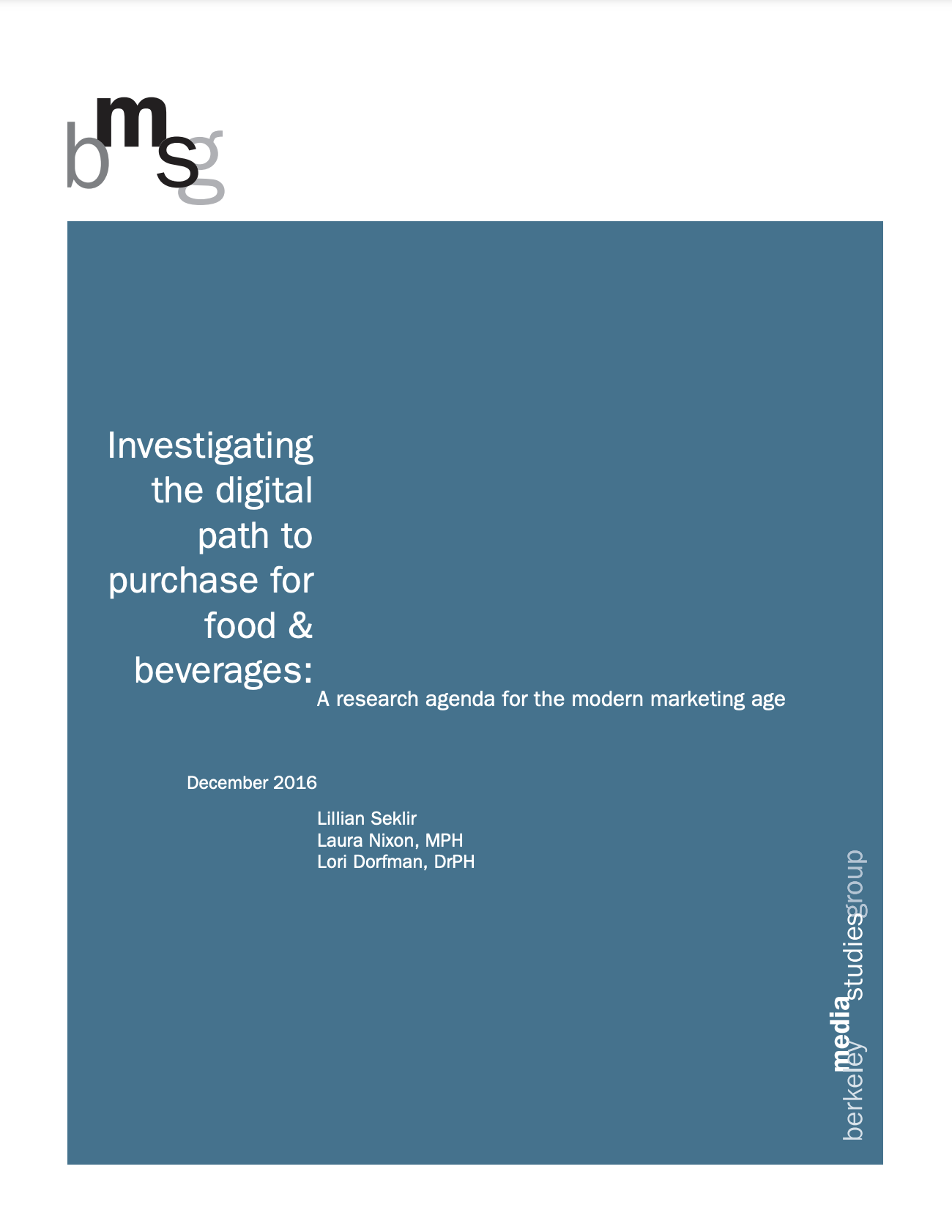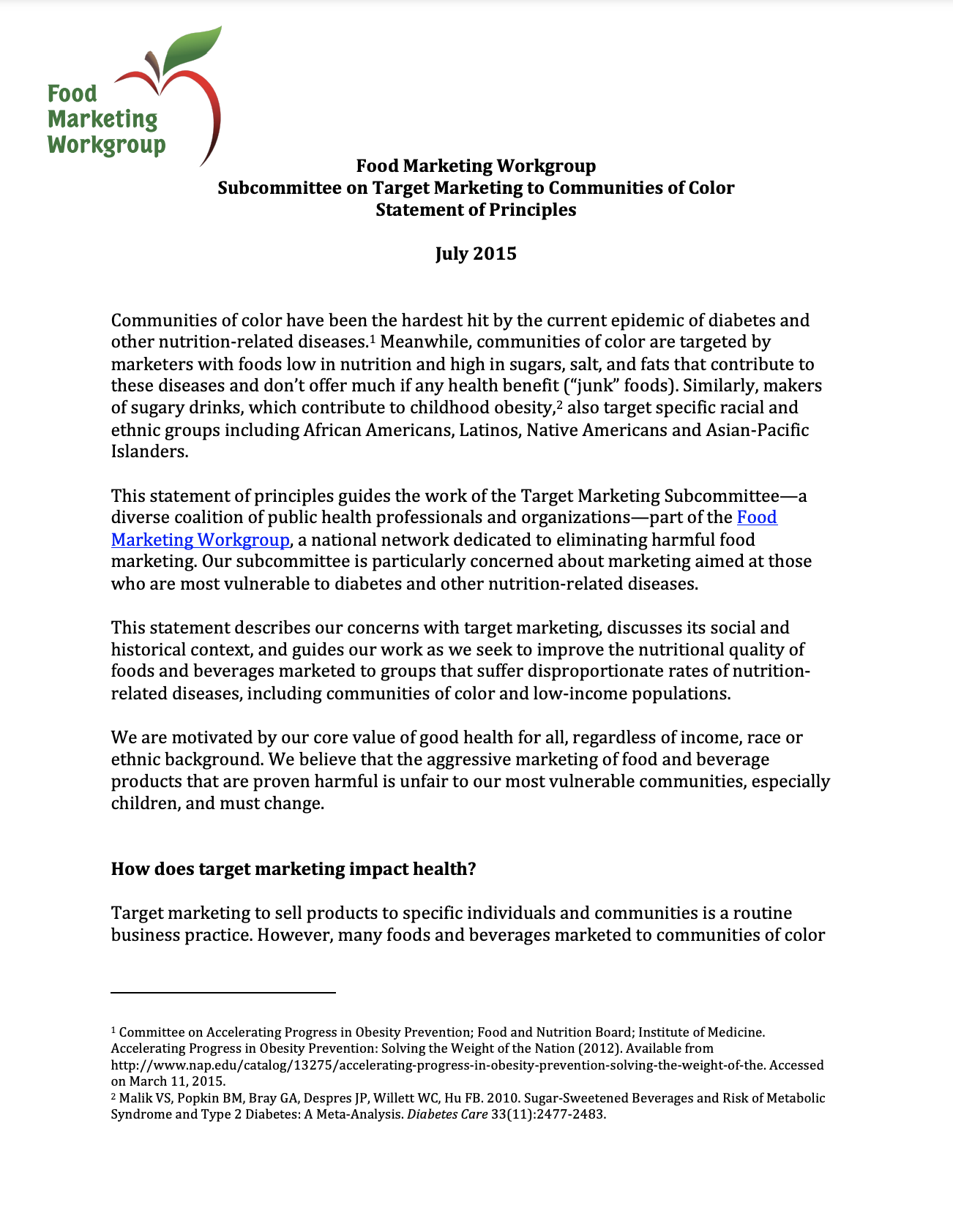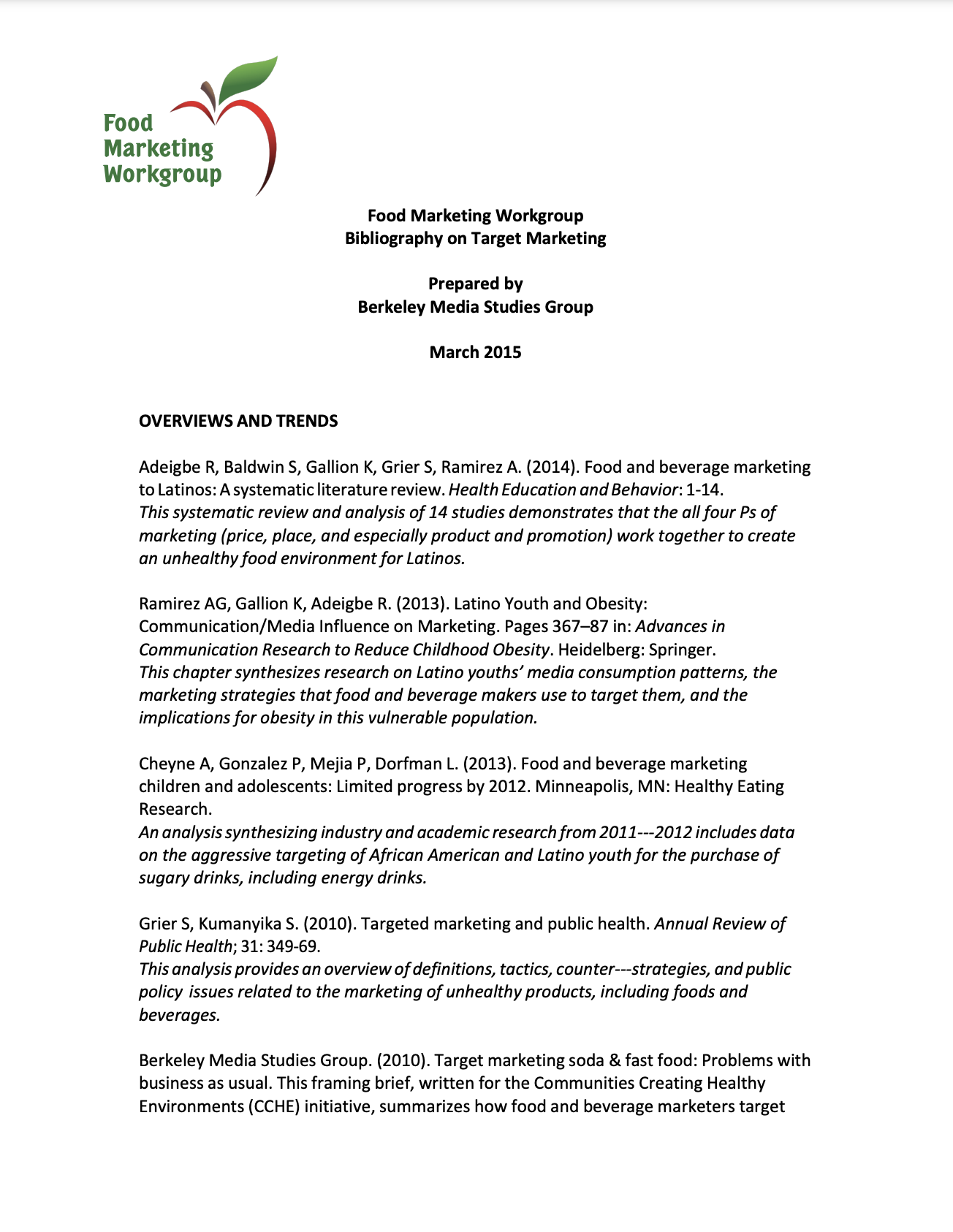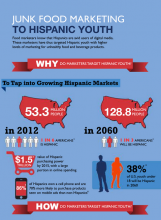Tech platforms popular with young people — including Facebook’s Instagram, Amazon’s Twitch, ByteDance’s TikTok, and Google’s YouTube – are working with giant food and beverage companies, such as Coca Cola, KFC, Pepsi and McDonald’s, to promote sugar-sweetened soda, energy drinks, candy, fast food, and other unhealthy products across social media, gaming, and streaming video. This report from the Center for Digital Democracy offers insight into the most recent industry practices and calls for federal and global action to check the growth of digital marketing of food and beverage products that target children and teens online.
